The following article was written by Bob Mehr and featured in the Chicago Reader, August 11, 2006.
Roscoe Robinson is a quartet icon, having sung with the likes of the Silver Quintette, Southern Sons (Trumpet), Original Five Blind Boys, and Blind Boys of Ohio.
In addition to recording soul, RnB, and other musical styles, Neal Hemphill brought local gospel artists such as the Birmingham Spirituals and Elizabeth D. Williams into his studio.
Finally, John Ciba (photographed with 45 rpm records – photo courtesy of Flynn) is a good friend of, and contributor to, TBGB Host Bob Marovich’s “Gospel Memories” vintage gospel music show on Chicago’s 88.7 WLUW (www.gospelmemories.com). Congratulations to John on the release of his reissue CD (see story below).
The Soul Plumber
Local DJ John Ciba introduces the world to Neal Hemphill, an Alabama recording hobbyist who gave a host of southern R & B musicians their first chance.
Bob Mehr
August 11, 2006
John Ciba used to have a pretty jaundiced view of Birmingham, Alabama. “Growing up in Chicago all I ever learned about was the racism and violence of the place from the civil rights era — blacks having fire hoses and dogs set loose on them,” he says. “That stuff really has stained the city in most people’s eyes. While all those negative things are part of the history of the place, there’s a real duality to the south and Birmingham in particular. So while the city was known for people like Bull Connor, it also had people like Neal Hemphill.”
Hemphill’s name probably won’t ring a bell unless you’re a hard-core crate digger or soul fanatic — but Ciba, half of the DJ duo East of Edens Soul Express, is both. Hemphill ran a plumbing company by day, but from 1966 to ’76 he also owned and operated a modest studio called Sound of Birmingham that served as an incubator for a vibrant community of southern soul and rock musicians, many of whom would go on to have long and successful careers. For the past two years Ciba has been regularly visiting Alabama, piecing together the story of Hemphill and his studio, and this week he’s launching his own Rabbit Factory label with the release of a compilation CD called The Birmingham Sound: The Soul of Neal Hemphill, Vol. 1.
Back in 2002, Ciba turned up an odd-looking 45 at Out of the Past on the west side — a version of the 1972 Frederick Knight hit “I’ve Been Lonely for So Long” by a group called the Birmingham Rhythm Section. “It was kind of a cool grungy-looking label called Black Kat,” he says. “I knew the Frederick Knight song, which was a superclean soul song, but this version was real rough with a horrible out-of-tune voice singing.” What intrigued him was that both versions credited the same producer: Neal Hemphill. “I got a burr in my saddle to figure out who this guy was. I didn’t have any leads, so I blindly started calling record shops in Birmingham.”
A native of Mobile, Alabama, Hemphill had been an aspiring white gospel singer with the Commander’s Quartet in the late 50s. By the mid-60s he was living in Birmingham with his wife and children and making his living as a plumber, but he hadn’t gotten music out of his system. “Around 1966 he basically decided to build a studio in the basement of his plumbing shop,” says Ciba. “He just kind of opened its doors to everyone.”
Hemphill, circa 1972. Photo courtesy of Roger Hallmark
Hemphill let local musicians have the run of the place during the day — he subsidized the studio with money from his plumbing business, rarely charging hourly rates but instead hoping his open-door policy would help somebody luck into a hit. He released much of the studio’s output himself, on in-house labels like Black Kat and Crown Ltd. Among the young artists who got an early break at Sound of Birmingham were guitarist Wayne Perkins, who’d go on to play with Bob Marley and the Gap Band, and future million-selling songwriters Frederick Knight and Sam Dees. “That was the early career of all those people,” says Ciba. “Hemphill gave all of them their first chance.”
Hemphill liked to tinker with electronics, and with his idiosyncratic amateur’s ear he developed a signature sound for the studio. He experimented with odd mike placements and homemade echo chambers, and in overdubs he might “play” a vacuum cleaner or thwack a two-by-four against the seat of a drum throne. Within a few years the studio’s reputation for creativity began attracting southern R & B vets like Roscoe Robinson and Ralph “Soul” Jackson.
Most of Hemphill’s releases were minor regional successes at best, but in 1972 the studio struck gold with Knight’s “I’ve Been Lonely for So Long,” which was licensed to Stax Records and became a hit on both the R & B and pop charts. Knight later launched his own label, which had a number one smash in 1979 with Anita Ward’s “Ring My Bell,” a disco number he’d written. Other Sound of Birmingham alumni did well for themselves too: Sam Dees wrote hits for Gladys Knight and Whitney Houston, Roger Hallmark signed to Stax subsidiary Enterprise as a songwriter, and Jerry Weaver played guitar for Aretha Franklin and produced Janet Jackson’s 1982 debut.
In 1975 Hemphill opened a bigger studio next to the plumbing shop, but within a year he suffered a heart attack and sold the studio to his engineer Don Moseley. Moseley moved it to the other side of town, where he still operates it today. Hemphill died in 1985 at age 55.
When Ciba began trying in earnest to track Hemphill down in late 2004, he didn’t even know the man was dead. In April 2005 he reached his son Neal Jr., who now runs the plumbing business, after talking on the phone with the secretary at the church Hemphill’s late wife had attended. “I called him out of the blue and he was a little put off at first, like, ‘Who are you and why are you calling me?'” says Ciba. “As it turned out his mother had just passed away, and he and his sisters had been going through the family’s stuff and had found all these boxes from the studio.”
Ciba met with Neal Jr. in Birmingham and sorted through his father’s things, including studio logs and about 500 reels of tape. He struck a deal with the family to license the material — they’ll get a cut of the profits after he covers the release expenses. For the past year Ciba’s been cataloging the music, mastering tracks, researching liner notes, and getting permission from the artists. “I had so much luck with people who wanted to be supportive of the project,” says Ciba. “Mainly because they wanted to honor Neal’s spirit. Through talking to everyone I came to really understand what a great and generous guy he was, and how much he’d meant to the lives and careers of so many people.”
Volume one of The Birmingham Sound includes many previously unreleased tracks, and even the songs that were released haven’t gotten much exposure. Longtime Hemphill crew members like Knight and Dees are represented, as are Roscoe Robinson, Ralph “Soul” Jackson, Eddie Steele, and David Sea; in addition to straight-up soul and R & B, there’s a bit of country soul and even a pair of psych-tinged tracks.
Ciba’s throwing two release parties for the comp: one’s in Birmingham later this month and the other’s at the Hideout on Saturday. Robinson and Jackson will make rare live appearances alongside local soul cover band Todd Hembrook & the Hemispheres; Atlanta soul DJ Brian Poust will spin, as will local DJ MLE and Ciba’s own East of Edens crew.
While working on this project Ciba has become close with a community of older R & B musicians and singers in Birmingham. He’s acting as a sort of volunteer manager for Robinson and Jackson, helping set up UK gigs and arranging recording sessions. “They want to do new stuff, but they’re limited in their resources,” says Ciba. He also plans to release a second compilation from Hemphill’s archives by the end of the year. “There’s a world of people out there who need to hear these guys — I’m just trying to facilitate that.” In his own way he’s carrying on the legacy of Neal Hemphill. “He was just a guy who loved music, and saw talent around him, and wanted to help. If I can do the same, I’d be very proud.”
5 Comments
Leave A Comment Cancel reply
Written by : Bob Marovich
Bob Marovich is a gospel music historian, author, and radio host. Founder of Journal of Gospel Music blog (formally The Black Gospel Blog) and producer of the Gospel Memories Radio Show.

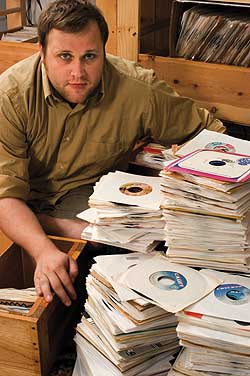
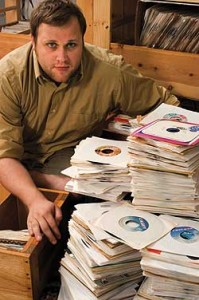
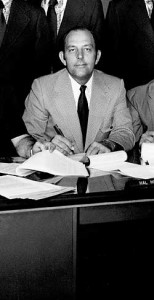
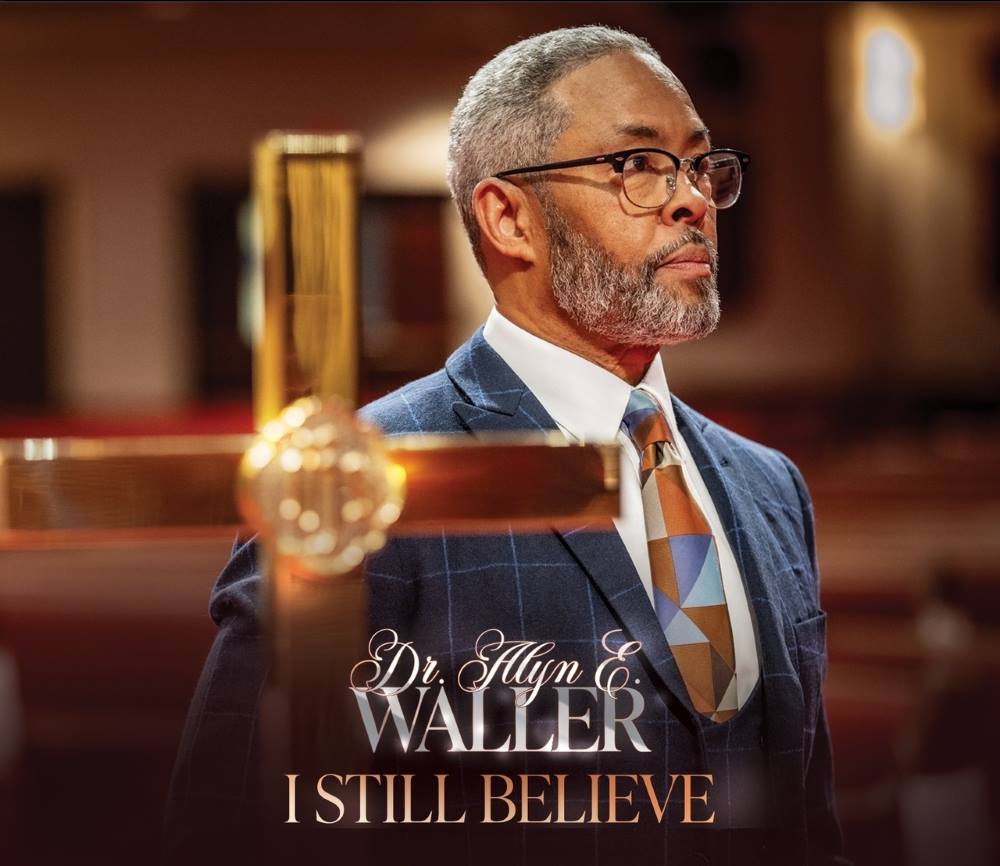
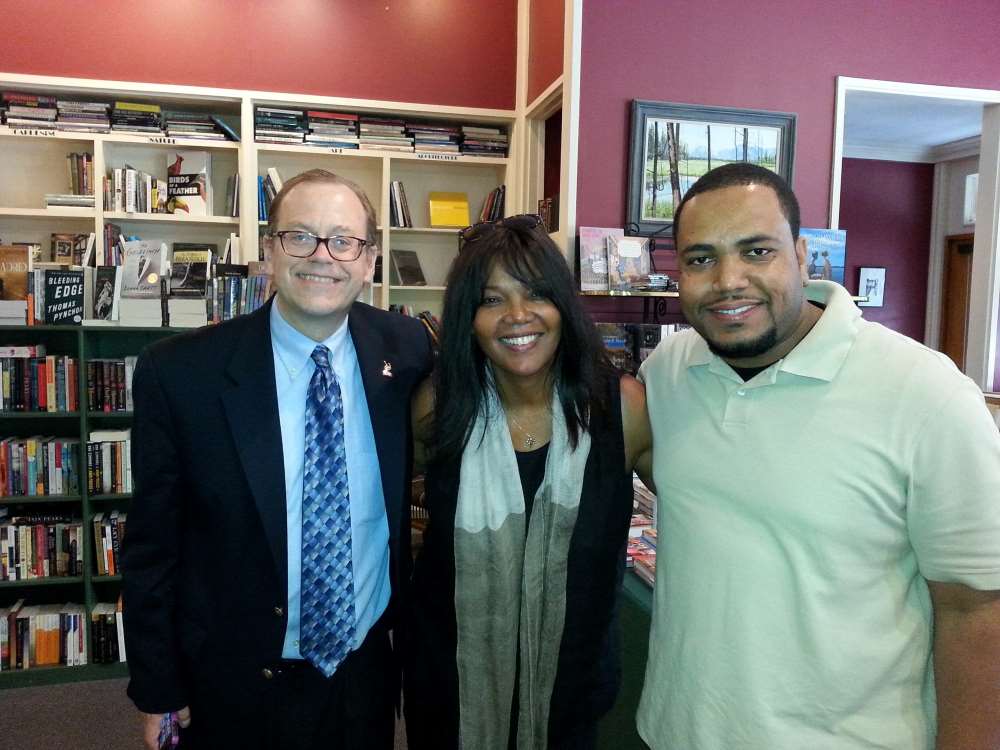







 Visit Today : 10
Visit Today : 10 This Month : 303
This Month : 303
I knew Neal Hemphill. I went to church with him and his family and dated Neal Jr. for a few years. I was dating him when Neal Sr. passed away. That was such a sad time in their lives and for everyone that knew him. He was truly a kind and generous man. I first met him when I was 13. I would sit with him and his wife at church and sing hymns along with them. He had such a beautiful bass voice, as did his son. I remember seeing a lot of the old albums in their basement and hearing stories about “the old days” but I had no idea what an impact he had made on the lives of so many singers. I think it’s great what John Ciba is doing. Mr. Hemphill deserves to be remembered. It’s a shame he had to leave this earth so soon.
Thank you for your memories of Neal Hemphill. He touched a lot of people in his short life.
IT SEEMS NEIL HEMPHILL IS MY SECOND COUSIN, I HAVE ALWAYS HEARED WHAT A BEAUIFULL VOICES THE BROTHERS HAD. YOUR STORY IS TRUE TO WHAT MY FAMILY TOLD ME ABOUT THEM . JUST A FEW YEARS AGO, MY MOTHER AND I VISITED HIS BROTHER IN BIRMINGHAM . THEY HAD A WONDERFULL TIME TALKING ABOUT THE OLD TIMES AS CHILDERN.
AFTER THE GROUP WAS NO LONGER TOGETHER , NEIL SR. MAKE A SONG CALLED ‘NEIL FROM MOBILE” , FROM THAT SONG, NEIL, WAS GIVEN THE KEYS OF THE CITY OF MOBILE,AL..
NEIL VISITED MOBILE (AS A YOUNG MAN ) AS MUST AS HE COULD , HE AND MY MOTHER AND SISTERS , FRIENDS WOULD GO DOWN TO THE WARF AND SING FOR HOURS
BACK THEN MUSIC WAS IN HIS BLOOD .
HE AND HIS FAMILY LEFT WONDERFULL MEMORIES FOR THIS FAMILY TO REMEMBER .
whats even more interesting, I think this man is related to me some how.
Thanks for posting this, I found it really interesting to read and was amazed that Hemphill ran a plumbing company during the day! I am also a plumber and like to play the guitar socially, although I’m not saying I’m anywhere as good as Neal I like the fact that we had something in common, both doing a practical trade during the day and creative in our spare time.